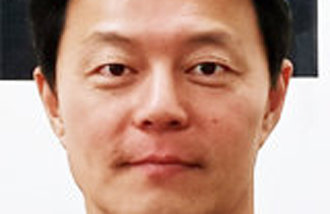Answer for plagiarism
A friend from college opened a small restaurant 11 years ago. Once the restaurant became widely known to people, one of its employees opened a new restaurant with a similar name and menu. The employee just tweaked the latter part of the original two-word name for his new restaurant. Since the former employee has now become the owner of a big franchise company with more than 100 branches nationwide, it would be meaningless to ask him if he plagiarized the business model.
He says, Such a practice is commonplace in this business. If a business becomes successful, a partner or an employee supplements its weaknesses and create a similar new business as a follower. A CEO of a franchise business doesn`t befit my friend, considering that he is just a father who loves to cook for his kids during weekends. He only made one request to the old employee and sometime later, the emblem of the restaurant, which almost copied my friend`s, changed.
"Plagiarism" has recently been the talk of the town on the Korean popular music scene. Just like cold winds blow when winter approaches, plagiarism has become a regular event. Most people seemed to consider it trivial. Readers responses to related articles were not that different. Journalists, I am sick of this. Report this when it is clearly determined as plagiarism. Why making a fuss for a song that is enjoyed by so many people? You cant bear others success. So bad. Dont they have to be grateful for plagiarism. They made their names in Korea thanks to plagiarism. Thats why they dont take this issue any more.
Four years ago in the fall, I was sticking to covering a dispute over plagiarism by one singer for weeks. Some part of the new song was considerably similar to that of a foreign band. Unfortunately, the article was not published in the end. As long as a plagiarized party does not raise the issue, this kind of accusation usually ends up being in vain.
Reference. Clichés. With regard to plagiarism, these foreign words, which surely have their Korean equivalences, are often used for a reason. When using these words in Korean, it is obviously revealed that references require indication of sources, and conventional phrases does not sound fancy enough. The producer of a work knows best whether it is a product of reprocessing based on references and whether clichés was used unknowingly. In other words, the most accurate indicator of plagiarism lies in the minds of producers.
The world is at the peak of technical reproduction. There is fierce competition for advanced technology that enables things to be copied and patched up precisely and seamlessly. People accept that there is nothing new under the sun as truth, nodding their heads. Collage is considered more sophisticated than painting. Asking whether it is plagiarized or not isn`t considered classy. When a success is made through great reinterpretation and reprocessing, who first made it becomes not important. It would be foolish to cast a damp over a pleasant party where everyone is enjoying the atmosphere.
However, ask yourself. The answer for plagiarism lies in yourself, somewhere in your mind that you have forgotten so long.







